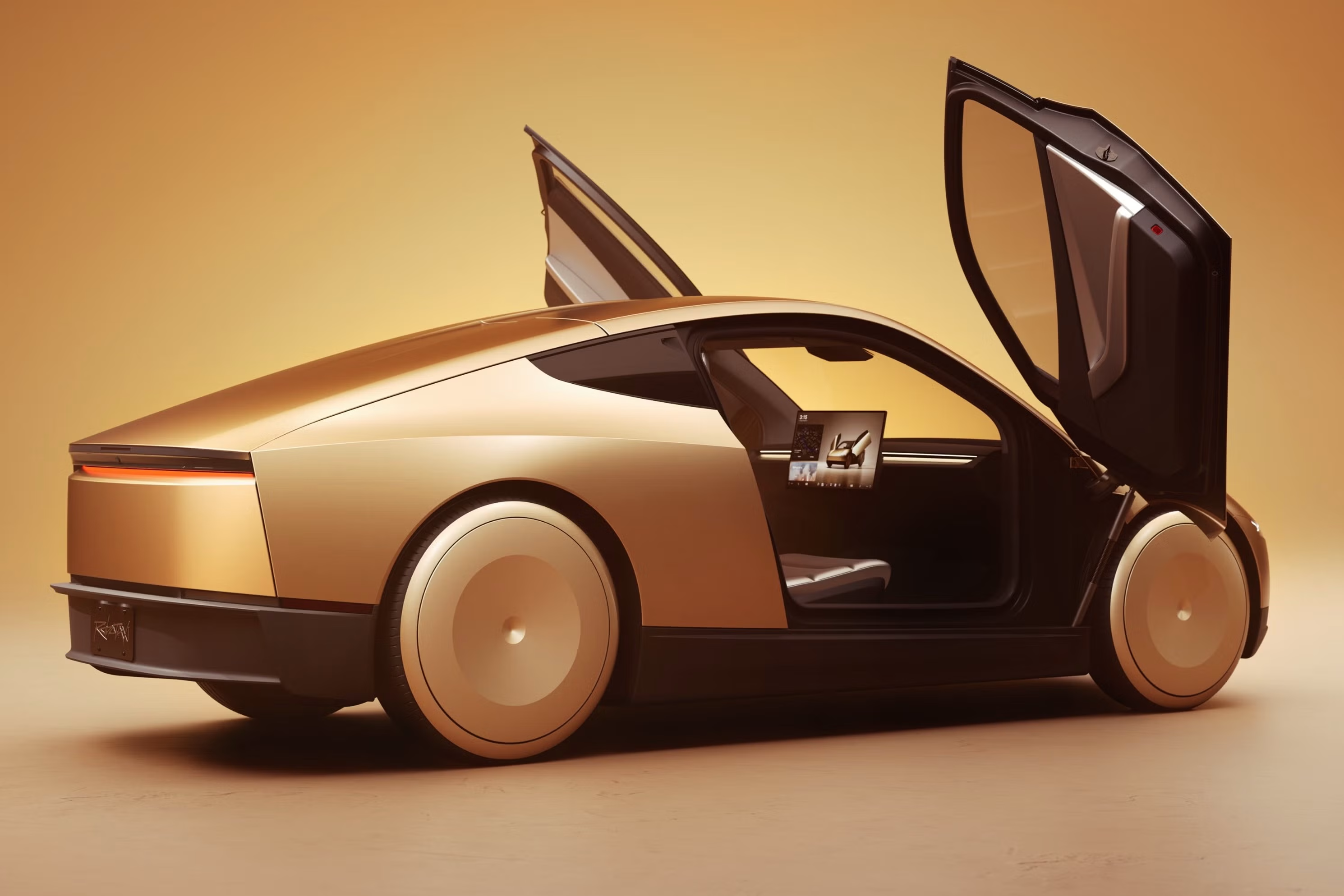Electric cars are becoming the most highly-awaited new vehicle releases in the automotive world. There's no denying that they're good for the environment, but what about style and mileage?
If you're interested in buying one, it might be difficult to decide which type is right for you. To help you out, this blog post will give an overview of some of the most popular types of electric cars and what sets them apart from each other.
At Nexus, we ship cars all over the world, so we know a thing or two about EVs. Read on to learn more!
How Many Types of Electric Cars Are There?
There are many different types of EV, including cars that prioritize using gasoline and cars that first use electricity and then use gasoline. Some types of EVs are cars that use electricity as their only source of power.
There are four main types of electric vehicle each with different types of electric vehicle chargers, and they're listed below.
All Electric Cars
These are the most popular type of EV, as they use only a battery and have no other fuel source. The majority of these vehicles also have regenerative braking systems that capture energy during stops or slowdowns and store it in the batteries for use later on when driving again.
All electric cars such as the Nissan Leaf use electricity for power with no other fuel source.
Pros:
- No emissions
- Silent driving
- Low running and maintenance costs
Cons:
- Limited range (average 80 miles)
- High initial purchase price
Best for:
This style of EV is best for people who want a completely emission-free drive with no noise. They are suitable for short distances or as a second car.
Plug-in Hybrid Electric Cars (PHEV)
These cars use both a battery and regular fuel, with the car's engine being used to recharge the electric energy in between charges or fill up on gas when they run out of charge entirely.
Plug-in types of hybrid cars such as the Chevy Bolt and Toyota Prius Prime use a battery pack, with the option to charge it using your home's electrical outlet. These cars are great for those who want some of the benefits of an all electric car but still need the flexibility of sometimes using gas.
Different types of PHEVs do operate slightly differently. Some have a gasoline engine that kicks in to generate power once the battery has been drained.
Pros:
- Extended range
- No emissions when running on electricity only
Cons:
- High purchase price (average $35,000)
Best for:
These types of hybrid cars are best for people who want the benefits of an electric car with the option to drive on gas when needed. These are great as a second or even third car since they can be charged at home.
Battery Electric Vehicles (BEV)
BEVs are largely similar to all electric vehicles, but can technically be charged without being plugged into a wall. However, these cars are usually only charged through electrical outlets in order to preserve their batteries and extend the range of time they can be driven between charges.
Battery Electric Vehicles (BEV) such as the Tesla Model S are 100% electric and do not require petrol or diesel. These cars have some of the longest ranges in their class, allowing them to travel hundreds of miles between charges.
Charging one up takes less than an hour on a high-speed Level II charging station and can be done at home or while you're out shopping.
Pros:
- No emissions
- Silent driving
- Low running and maintenance costs
Cons:
- Limited range for non-Tesla vehicles (average 80 miles)
Best for:
We think these cars are best for people who want a completely emission-free drive with no noise. They are suitable for long distances or as a second car.
Fuel Cell Electric Vehicles (FCEV)
These vehicles operate using hydrogen fuel cells instead of regular or electric energy stored within their battery packs, with an onboard generator converting the hydrogen gas into electricity to power the electric drivetrain and other systems.
Fuel Cell Electric Vehicles (FCEV) such as the Hyundai Tucson FCEV use a fuel cell to convert hydrogen into electricity. These types of cars have some of the longest ranges in their class and can travel up to 300 miles on one tank but are very expensive compared to other electric options.
Pros:
- Long-range (300+ miles)
- No emissions when in operation
Cons:
- High cost of fuel ($15-$20 per kilogram)
Best for:
These are best for people who want the benefits of an electric car with a low carbon footprint. These are great as a second or even third car since they can be charged at home.
Electric Cars Aren't Just for Environmentalists
Even if you're not someone who typically cares about the environment, there are plenty of reasons to consider buying an electric car. In addition to reducing your carbon footprint, electric cars are also cheaper to operate and maintain than traditional gas or diesel vehicles.
Plus, with new technology being released all the time, there's a good chance that your favorite electric car will have some pretty sweet features that you'll love.
The Most Popular Types of Electric Cars
The most popular electric cars are the Tesla Model S, Nissan Leaf, BMW i Series, and Chevrolet Bolt. All of these vehicles have different ranges to suit various needs, from long road trips to shorter daily commutes.
What’s the Difference Between an All-Electric Car and a Bev?
All Electric Cars such as the Nissan Leaf are powered by an onboard generator.
Battery Electric Vehicles (BEV) also run completely emission-free, but they do not use a gas engine for power and instead rely on their battery packs to supply all electricity needs.
Did you know that EV plug types are not all the same? Different countries have different EV plug types. There are three types of plugs:
- Type I, which is used in North America and has two flat blades.
- Type II, which is used in most of Europe and Asia Pacific and has two round pins.
- Type III, which is used in South America and has three round pins.
Electrical Vehicle Charging Stations and Cost
Charging your electric car at home is easy and can be done with a standard 120-volt outlet. This will take anywhere from 12 to 36 hours to fully charge your vehicle, depending on the type of charger you have.
For those who need a little more speed in their charging, there are high-powered 240-volt chargers that can cut that time down to as little as four hours. These are the same type of chargers used for large appliances like refrigerators and washers/dryers.
Electricity rates vary depending on your location, but most people will only see a slight increase in their monthly bill when adding an electric car charger to their home.
Public charging stations are also becoming more and more common, with many businesses offering free charging for their customers.
Which Electric Car Has the Longest Range in 2022?
This is a difficult question to answer, as the range of electric cars continues to increase every year. The current long-range champion is the Tesla Model S, with a maximum range of 335 miles on a single charge. However, new models from other manufacturers are quickly catching up and this title will likely change in the next few years.
Conversely, the battery-electric Nissan Leaf has a shorter range of just 107 miles per charge, but this is still more than enough for most daily driving needs.
Fuel Cell Electric Vehicles (FCEV) such as the Hyundai Tucson FCEV are coming onto the market and have a claimed range of up to 300 miles, which is almost twice that of any other electric vehicle currently available.
However, it's important to note that this type of car has its critics when it comes to the high cost of fuel and lack of infrastructure.
The different types of EV cars available will likely continue to increase in the coming years, making them a more and more viable option for everyday driving. With continued advancements in technology, it's possible that all-electric vehicles could eventually become the norm.
Are There Any Complexities to Towing an Electric Car?
There are no special requirements needed to tow an electric car, so most people can do it themselves.
However, if you have never towed a vehicle before or don't feel comfortable doing the job yourself, then hiring a professional is probably your best bet. While there's no additional difficulty towing an EV, owning an electric car does come with a couple of drawbacks.
The first is that right now most electric cars have a very limited range (average 80 miles), so you'll need to take that into account when planning your trip. The second is that charging an electric car can be time-consuming, so make sure you have enough time to fully charge it before hitting the road.
Electric vehicles are becoming more and more popular each year, and for good reasons. They're cheaper to operate than traditional gas vehicles, have a lower environmental impact, and are becoming increasingly more affordable.
With continued advancements in technology, likely, electric cars will eventually become the norm. So what are you waiting for? Start shopping for your perfect electric vehicle today!
Call Us if You Ever Need to Ship an EV
So, there you have it: a quick explanation of the distinctions between different types of electric cars. Which types of electric vehicle appeal most to you?
If you enjoyed reading our guide to different types of electric vehicle, keep exploring the Nexus blog or learn more about what we do!
Why not visit some dealerships and take your favorite types of EV for a spin?
We know a lot about them because we specialize in shipping cars around the world. If you ever need to ship an EV contact us.



